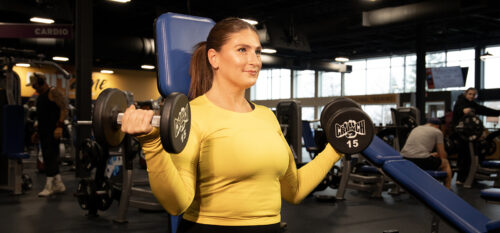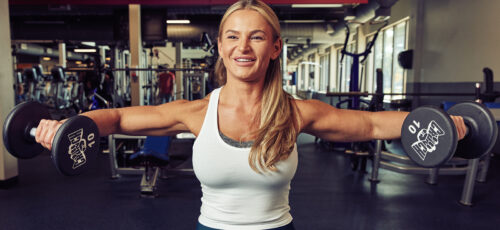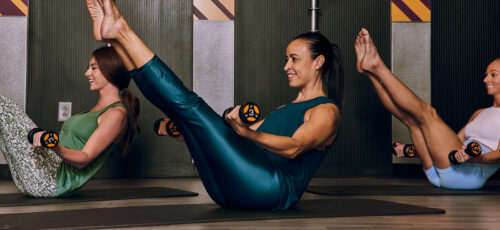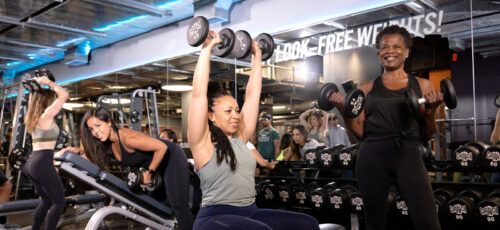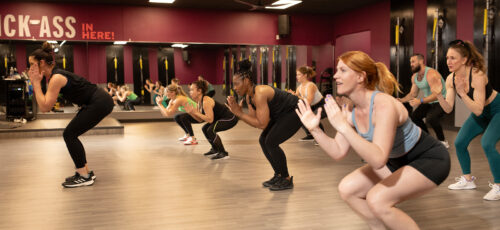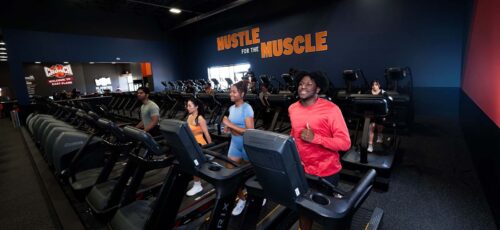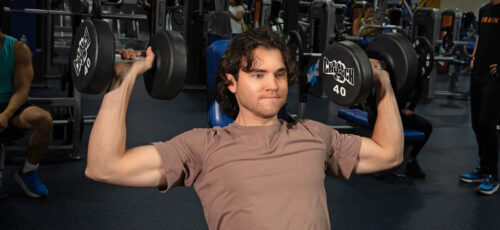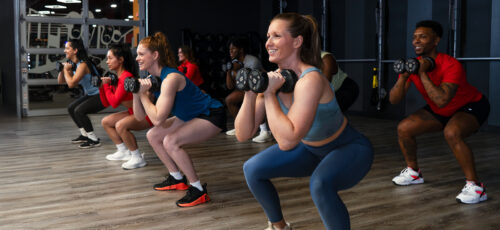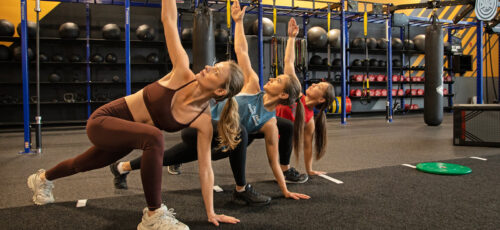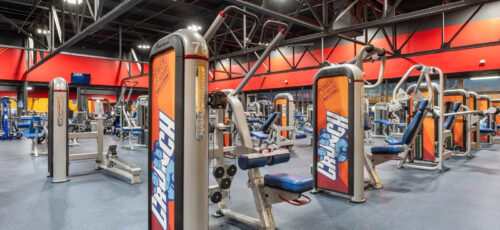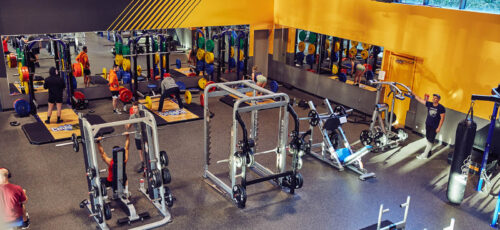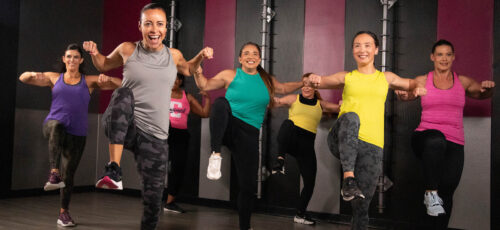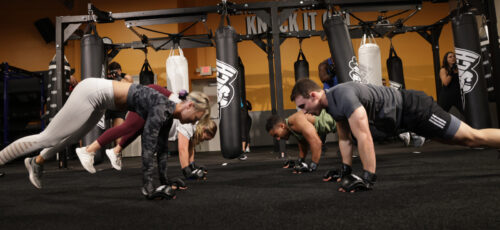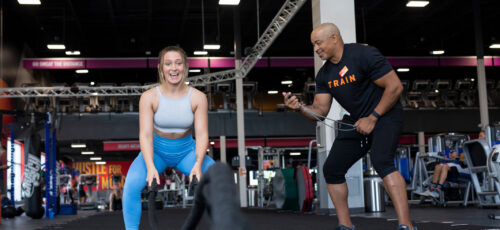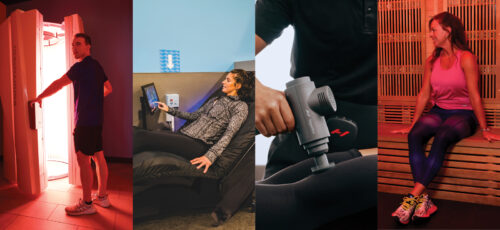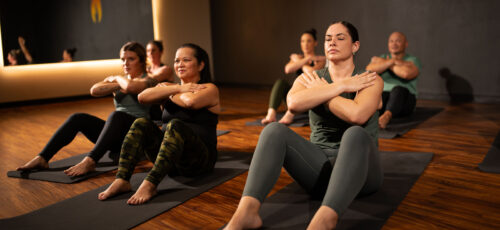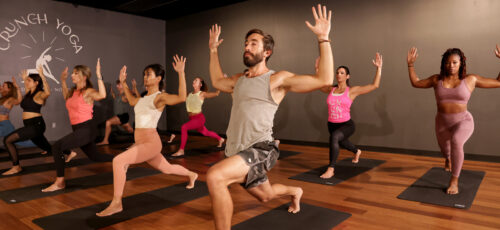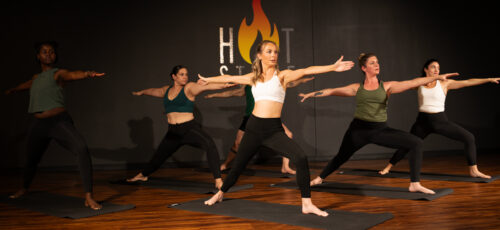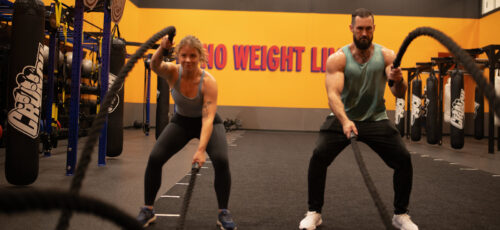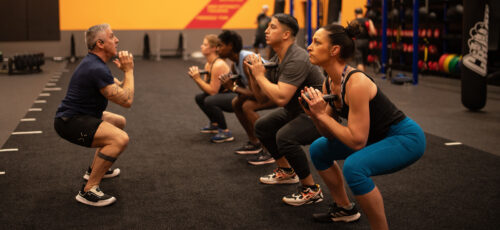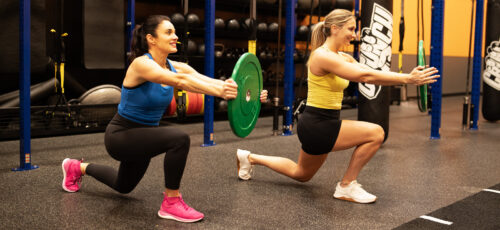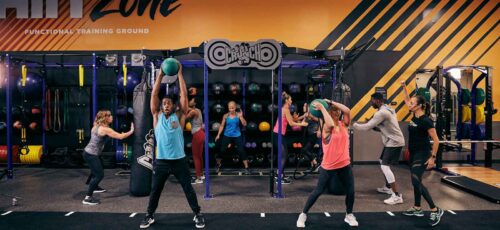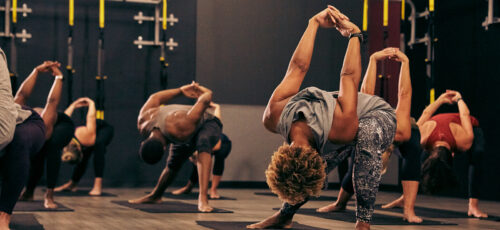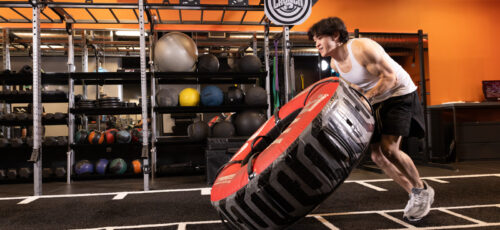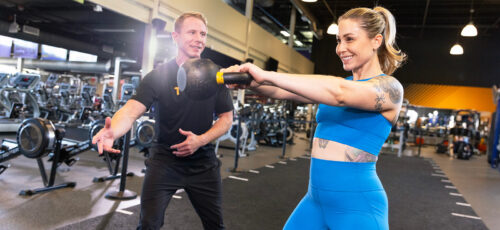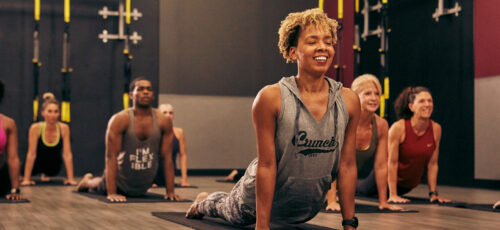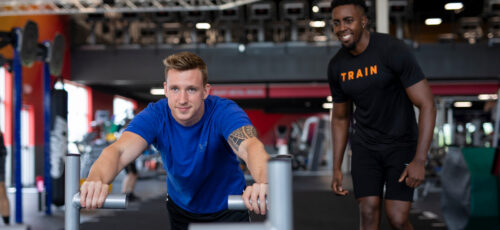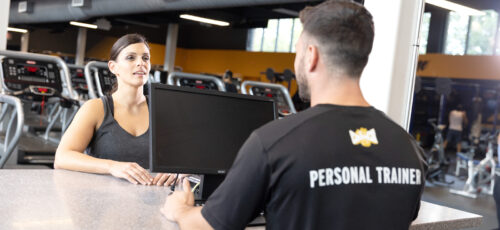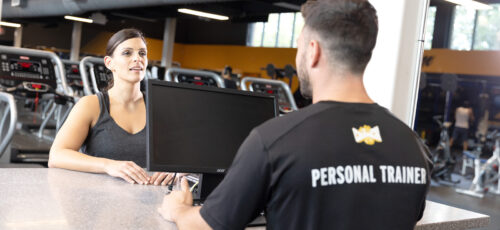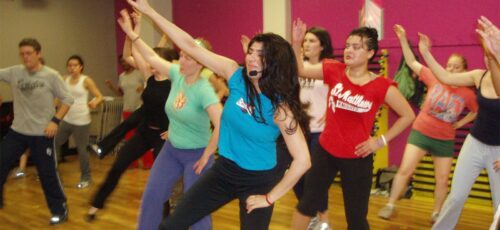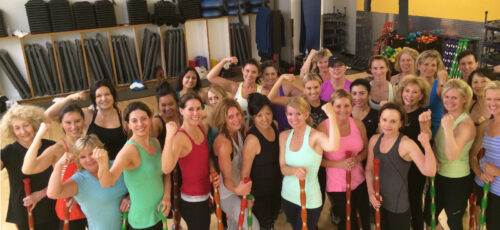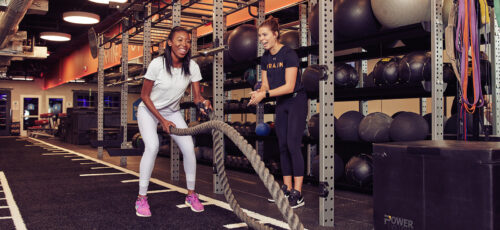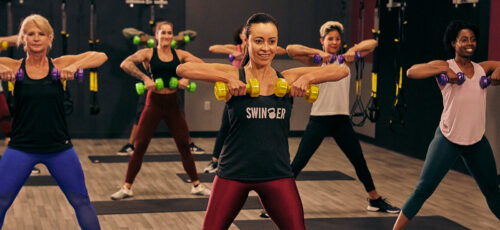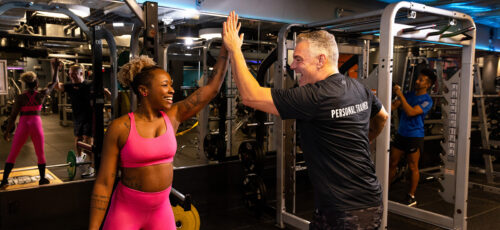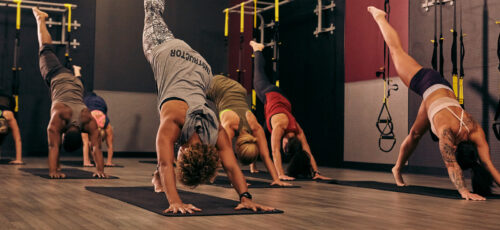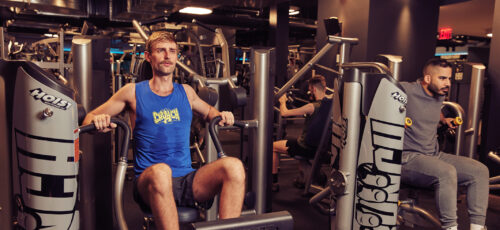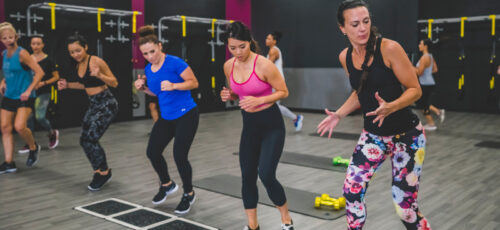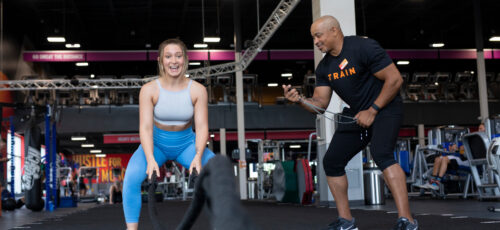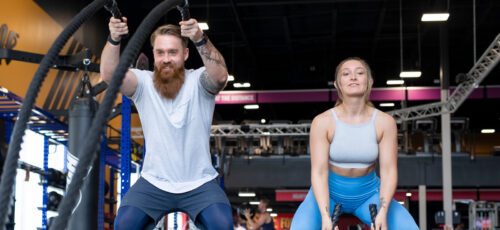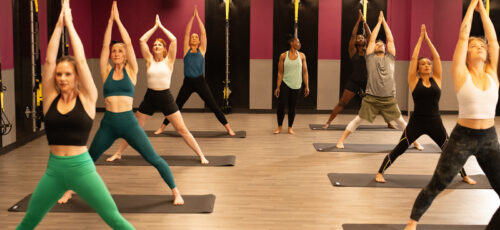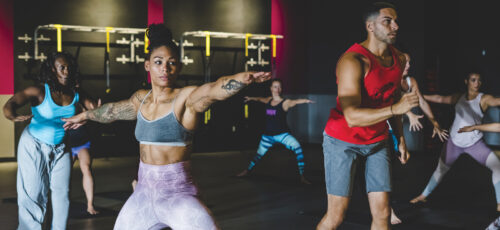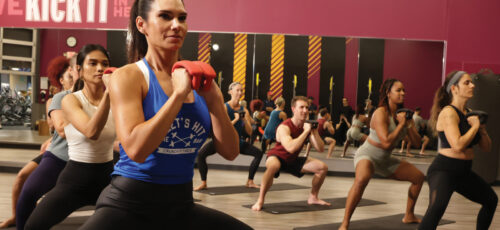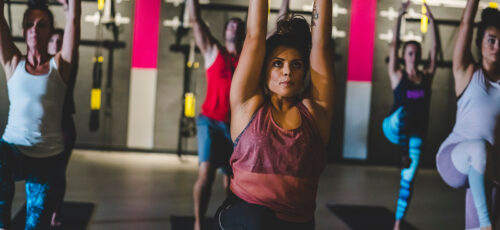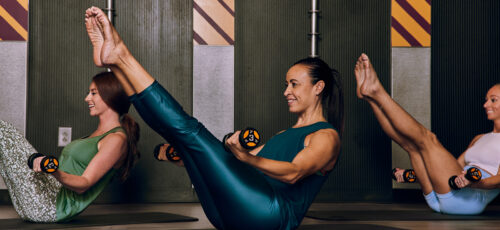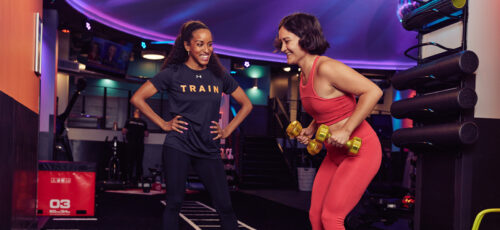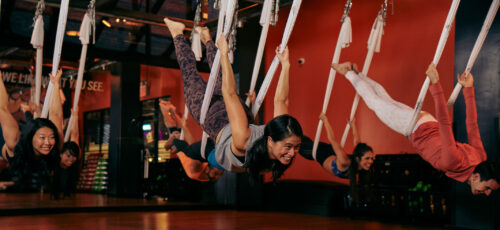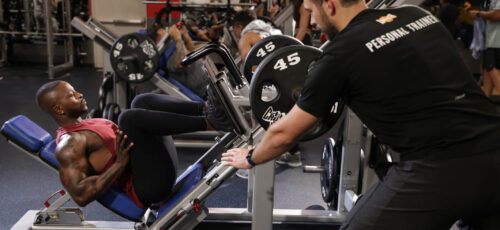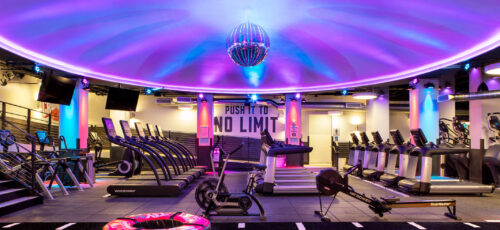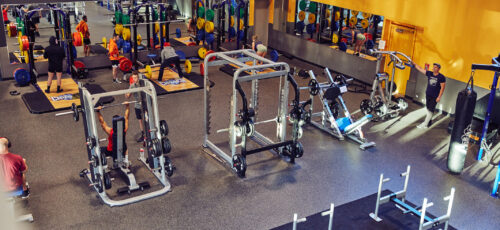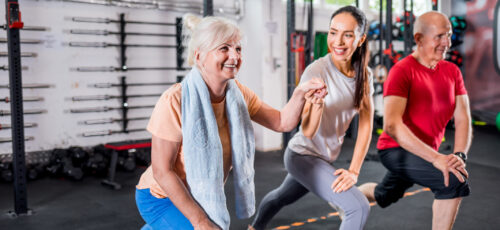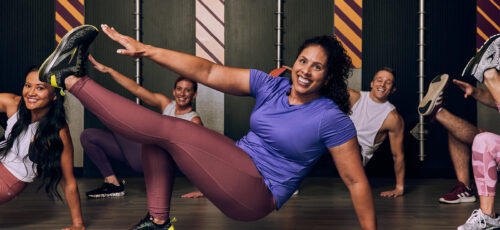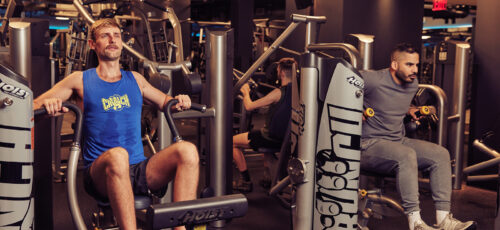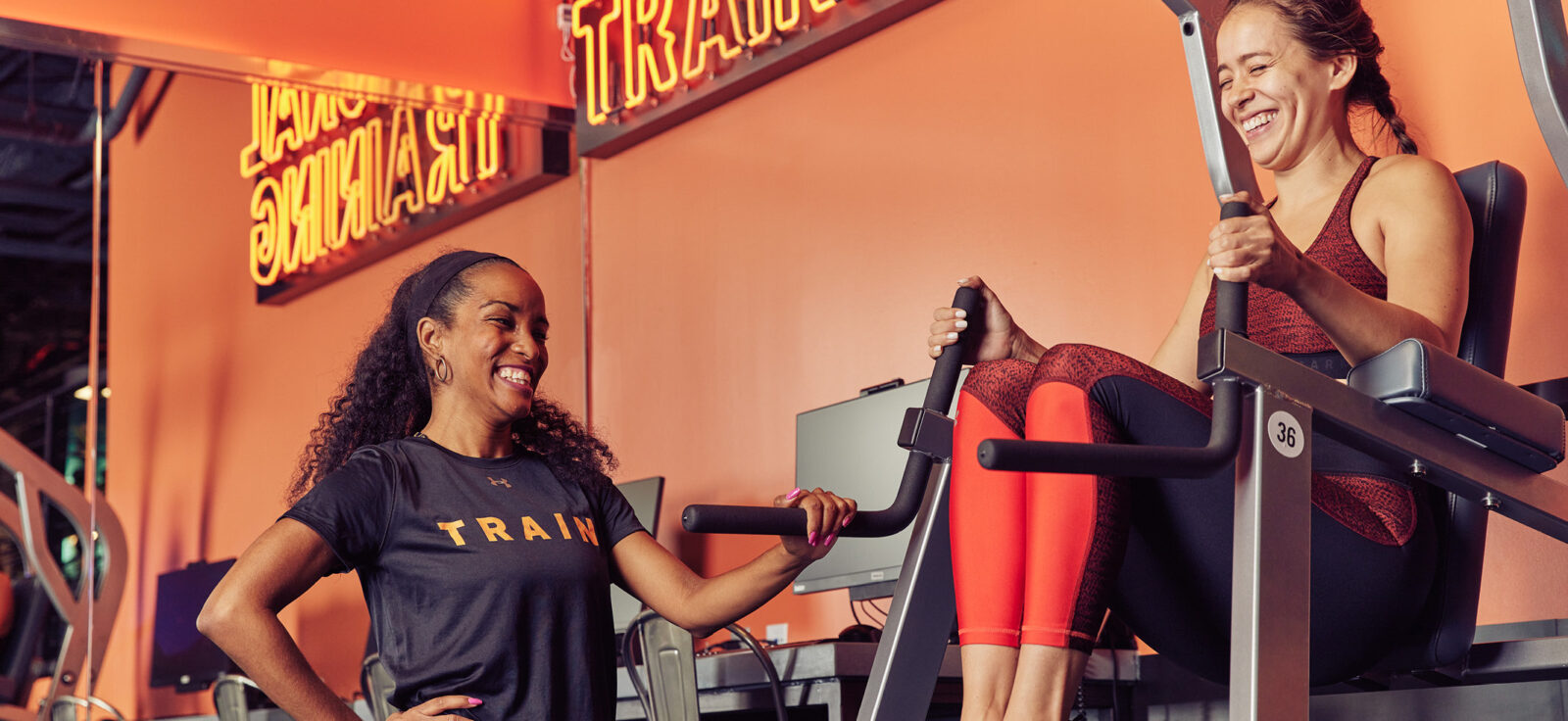
In the journey towards achieving our fitness goals, having a personal trainer by our side can make all the difference, which is why all of Crunch’s gym memberships include personal training services. But with so many options available, how do you find the perfect personal trainer? Today, we’ll walk through the essential steps to help you navigate this process seamlessly and find a personal trainer who aligns with your goals, preferences, and budget.
Understanding the variations of exercise science and coaching styles is crucial when you’re seeking guidance from a personal trainer.
Good trainers not only possess the requisite certification but also exhibit a deep understanding of human movement and a commitment to promoting a healthy lifestyle. Finding a good trainer goes beyond credentials; it involves determining harmony in energy level, coaching style, and overall approach.
Ultimately, the goal is to establish a strong relationship with your future personal trainer, the one that’ll be a good fit for your unique needs and aspirations. Now, let’s talk about how to find the right match for you.
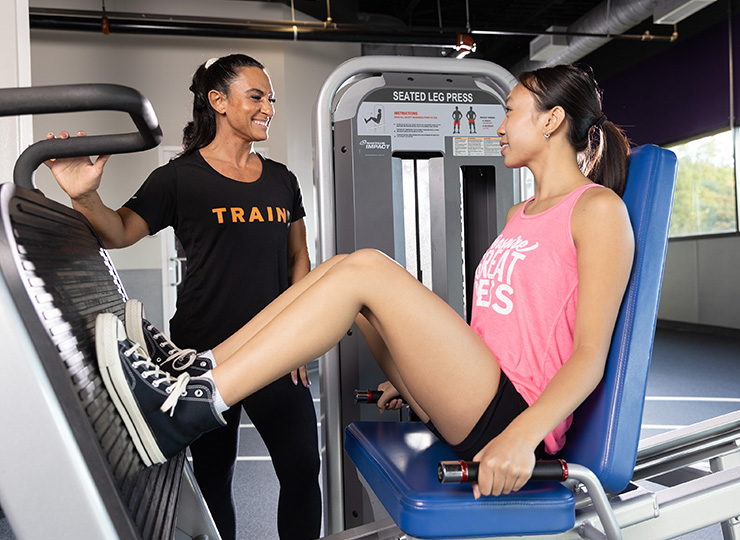
Define Your Fitness Goals
Before embarking on your quest to find the ideal personal trainer, you must define your goals deeply and clearly. Many individuals embark on their journey without a clear understanding of what they genuinely want to achieve, leading to frustration and lack of progress. Taking the time to introspect and identify your objectives lays the foundation for a successful partnership with a personal trainer.
For most people, this process involves more than just stating a desire to “get in shape.” It’s about exploring personal aspirations, understanding motivations, and recognizing potential obstacles.
Are you interested in weight loss to improve your health, or are you aiming for a body transformation that boosts your confidence? Are you seeking to excel in a specific sport or activity, or perhaps you want to prioritize injury prevention and longevity?
Defining these goals not only provides clarity for yourself but also enables your potential trainer to understand your needs and tailor their approach accordingly. It’s crucial that the trainer listens to your input and establishes a program aligned with your goals.
This includes determining how often you’ll meet for training sessions. Expectations play a significant role in this process. Many individuals expect their personal trainer to possess not only expertise in fitness but also interest in their goals beyond the gym.
They seek someone genuinely invested in their progress, willing to teach them about different diets to complement their workouts, and eager to share additional knowledge from their coaches’ education in the field. An excellent personal trainer understands the interconnectedness of fitness, nutrition, and lifestyle factors and works with their students to achieve overall wellness.
The first session with a potential trainer is a crucial opportunity to align expectations and assess compatibility. The initial meeting lets you discuss your goals in depth and evaluate the trainer’s coaching style, energy level, and communication approach. It’s a chance to ask about their certification, experience, and philosophy towards fitness and life.
This session provides an opportunity for the trainer to conduct a thorough assessment of your current fitness level and any potential injury concerns. This information helps them to design a personalized workout plan that not only challenges you but also prioritizes safety and progress.
Defining your fitness goals goes beyond superficial desires; it involves introspection, clarity, and alignment of abilities. By taking the time to understand what you truly want to achieve and finding a personal trainer who shares your vision, you set yourself on a path toward actual progress and lifelong wellness.
Understand Training Styles
With various training styles available, you must familiarize yourself with different workout purposes. Each approach offers unique benefits, from coaches with specialized knowledge to wellness specialists.
Consider what resonates with you the most and aligns with your goals. For example, a sports trainer like a football coach might have different skills and routines placed for you than a regular trainer. Everyone has different training styles, but tailoring it towards what you want differs from what you need.
Most people expect their fitness mentors to know various training methodologies and exercises. They are interested in achieving physical results and learning about the impact of different workouts on their overall health and well-being.
A prospective trainer, and more importantly, a good trainer, should be able to teach every student about proper form, exercise progression, and the importance of incorporating diverse movements into their training plan. Now, let’s check some of the different styles a personal trainer or even a coach with a broader focus on personal development can help you achieve your goals. When considering potential trainers, it’s essential to examine their personal trainer qualifications and certifications, as these indicate whether they are a good fit for your specific needs.
Fitness trainer
Fitness trainers help individuals identify their fitness level and overall health and create personalized fitness plans based on their physical needs. They assign fitness routines and modify their progress when necessary. They regularly instruct, motivate, and encourage everyone to exercise and improve their health. Fitness trainers help you understand the proper use of fitness equipment such as treadmills, weights, exercise bikes, and elliptical machines. They may additionally answer questions related to diet and exercise and engage in first aid if necessary.
Lifestyle coach
They help you improve your life and achieve your goals. They help motivate their trainees to exercise, provide tips and advice to help them lose weight, and create diet plans for them. They encourage them to make their own health and fitness goals and help them recognize when to adjust their strategy for achieving them.
These kinds of coaches frequently help to eliminate unhealthy habits and celebrate with them when they meet their goals. They may also meet with clients to discuss their progress.
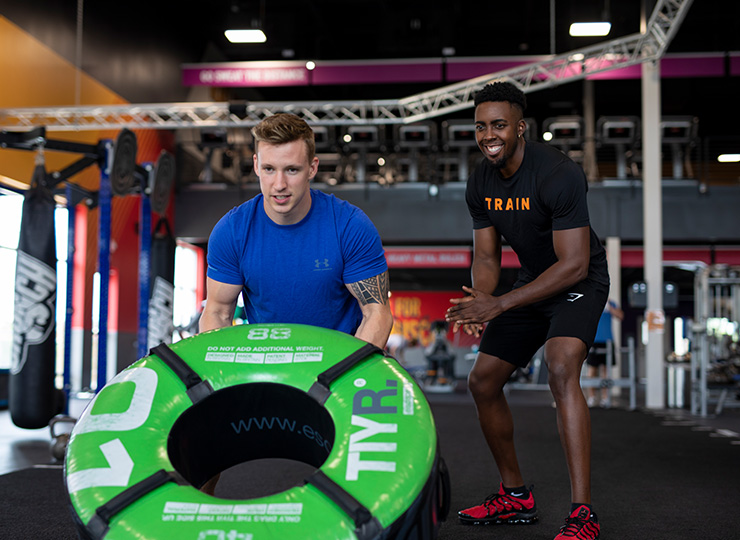
Sports coach
Sports coaches help train athletes and prepare them for competitions and events. They use their knowledge of the human body to help athletes avoid lesions and may utilize first aid to help injured athletes. They additionally help athletes who are in the process of recovering and work hand in hand with sports medicine doctors to improve their athletes’ functional abilities and physical strength by creating customized exercise plans.
Prior to the day of a competition or event, sports coaches organize and supervise practice sessions and create training plans. They may also schedule practices and training sessions while encouraging safe practices.
Personal trainer
General personal trainers assess members’ physical strengths and weaknesses and create customized exercise plans to help them achieve their fitness goals. The best personal trainers track everyone’s progress so their clients can reach their goals. The right trainer will always put your interests and well-being first. This includes being adept at customizing plans and approaches to accommodate various health conditions or injuries that clients may have. Whether it’s designing low-impact workouts, incorporating specific rehabilitative exercises, or adjusting intensity levels, a skilled trainer ensures that your fitness journey is tailored to your individual needs, promoting safety and effectiveness throughout the process.
Athletic trainer
Athletic trainers typically work with athletes of all ages who are preparing to compete against other athletes and require a lot of training. They apply devices to prevent injury, such as protective tape, evaluate injuries, provide first aid or emergency care, and create rehabilitative programs for injured athletes.
They provide athletes with various athletic training services to help them perform at their best on the day of a game or sporting event. Athletic trainers may also engage with health professionals and other trainers to prevent and treat injuries and create recovery plans.
Wellness Specialist
Wellness specialists guide their clients and help them achieve their wellness and fitness goals and objectives by designing fitness programs and creating training methods according to their needs and specifications. They meet with their clients to discuss their exercise routines, stress levels, nutrition habits, and sleep routines to create personalized wellness plans and motivate them to improve their lives.
They regularly meet with other trainers and wellness and health professionals to ensure their clients are progressing in their treatment and intervene in situations where they might require immediate medical attention. Wellness specialists may also suggest specific meal recommendations.
Health coach
Health coaches assess their clients’ current health, develop health goals on their behalf, and encourage them to practice healthy habits through diet and exercise. They create an exercise and diet plan for each client, prepare guidelines to eliminate unhealthy behaviors, and design health care objectives and treatment plans.
They often collaborate with physical therapists and their client’s health care providers to assess their improvement and ensure they meet their goals. Health coaches may also conduct regular health screenings, counsel clients to help them gain confidence, and meet with clients individually or in a group setting.
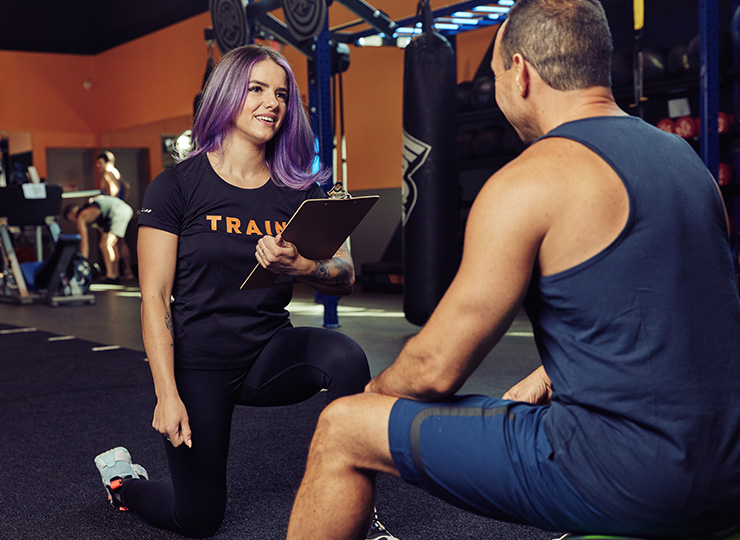
Exercise specialist
Exercise specialists plan and design exercise plans to help their clients improve their health and increase their confidence. They instruct their clients on how to exercise properly and transition from one exercise to another. They provide insight into potential weight-loss techniques and may analyze their client’s medical history to determine the most effective fitness routine to assign.
Exercise specialists may also speak with their client’s family members to encourage them to be a source of motivation. Some specialists may work exclusively in health care facilities and help clients recovering from injuries regain mobility and recovery quickly.
Bodybuilding coach
Bodybuilding coaches help athletes improve their muscle tone by designing training plans for them and ensuring they are well-adjusted to them. They encourage them to lift weights, follow a healthy diet, and avoid risking injury. They often create workout schedules and nutrition plans and meet regularly to discuss their progress.
Bodybuilding coaches may also help their athletes and fitness enthusiasts to exert themselves safely and healthily while providing them with additional resources to exercise on their own.
Meeting Potential Trainers
Once you have a clear understanding of your goals and preferred training styles, it’s time to start meeting potential trainers for consultations. Schedule meetings with several trainers to discuss your objectives, preferences, and training strategies. Treat this initial meeting like a trial session, so you can assess the trainer’s expertise. It’s a valuable opportunity to gauge their proficiency, communication style, and compatibility with your personality.
During the consultation, don’t hesitate to ask questions about the trainer’s experience, certifications, training philosophy, and availability. Inquire about their approach to designing personalized workout plans and how they adapt to members’ needs and progress.
Finding the best personal trainers often involves considering their educational background and personal experience. A trainer with a solid educational foundation in exercise science or a related field will likely have a deeper understanding of physiology and training principles. Maybe schedule a CrunchONE Kickoff at Crunch to know more!
The right trainer-client relationship goes beyond qualifications and logistics; it’s about finding a good fit on a personal level. Pay attention to how comfortable you feel discussing your goals and concerns with the trainer and whether their personality aligns with yours. By prioritizing compatibility, you can ensure a rewarding and successful training experience, whether it’s through in-person sessions or online training programs.
Considering Budget and Availability
As you narrow down your options, consider your budget and the trainer’s availability, including the possibility of online personal trainers. Personal training is truly for everyone at any level, whether you’re a novice navigating the gym for the first time or someone in need of extra motivation to stay on track. With a personal trainer, you’ll receive tailored guidance and support regardless of your starting point or fitness goal. To know if you and your trainer are right fit for each other or not, schedule a CrunchONE Kickoff at Crunch today!
However, if you’re on a strict budget and can’t afford 1 on 1 personal training, consider joining group fitness classes instead. These classes offer a more affordable option while still providing structured workouts and a supportive environment. Check out Crunch’s variety of group fitness classes for more options. group fitness classes
If you’re pressed for time and struggle to make it to a physical gym, online trainers offer a convenient solution. They can provide personalized workout plans and support remotely, allowing you to pursue your fitness goals from the comfort of your own home or wherever your busy schedule takes you.
Personal training fees can vary significantly depending on factors such as experience, location, and session duration. It’s important to evaluate the cost of personal training sessions and packages to ensure they align with your budget without compromising on quality. However, investing in a qualified and experienced trainer can yield significant benefits for your health and well-being in the long run.
Consider the trainer’s availability and scheduling flexibility, whether you opt for in-person or online sessions. Consistency is key to achieving your fitness goals, so finding a trainer with a schedule that fits your lifestyle and commitments is crucial. Whether you prefer the accountability of face-to-face sessions or the flexibility of virtual training, choosing a trainer whose availability aligns with yours will set you up for success on your fitness journey. If 1:1 personal training isn’t your preference, you may find group exercise classes to be a better fit, offering the social dynamics, motivation, and sense of community that come with participating in the benefits of group exercise classes.
Then, How Do I Find the Right Personal Trainer for Me?
Remember that the best personal trainer for you is someone who not only matches your goals and training preferences but also fits within your budget and schedule. By investing time and effort in finding the right match, you’ll set yourself up for success on your fitness journey. So, take the plunge, find your perfect personal trainer, and embark on a transformative path towards a healthier and happier you.
Join Us!
Crunch prioritizes personalized training and unwavering support, empowering individuals to reach their fitness goals. Their dedicated staff focuses on motivation and expert guidance to maximize personal training results. Crunch promotes a culture of positivity, inclusivity, and fun with no judgments by providing an environment for all individuals regardless of their health and fitness goals. Find a Crunch gym near you to try our free trial membership, or join Crunch now. We’re here for you – at the gym or at home. Access the best live & on-demand workouts anytime, anywhere with Crunch+. Ready to get sweaty? Try hundreds of workouts for free! Start your free trial now!











